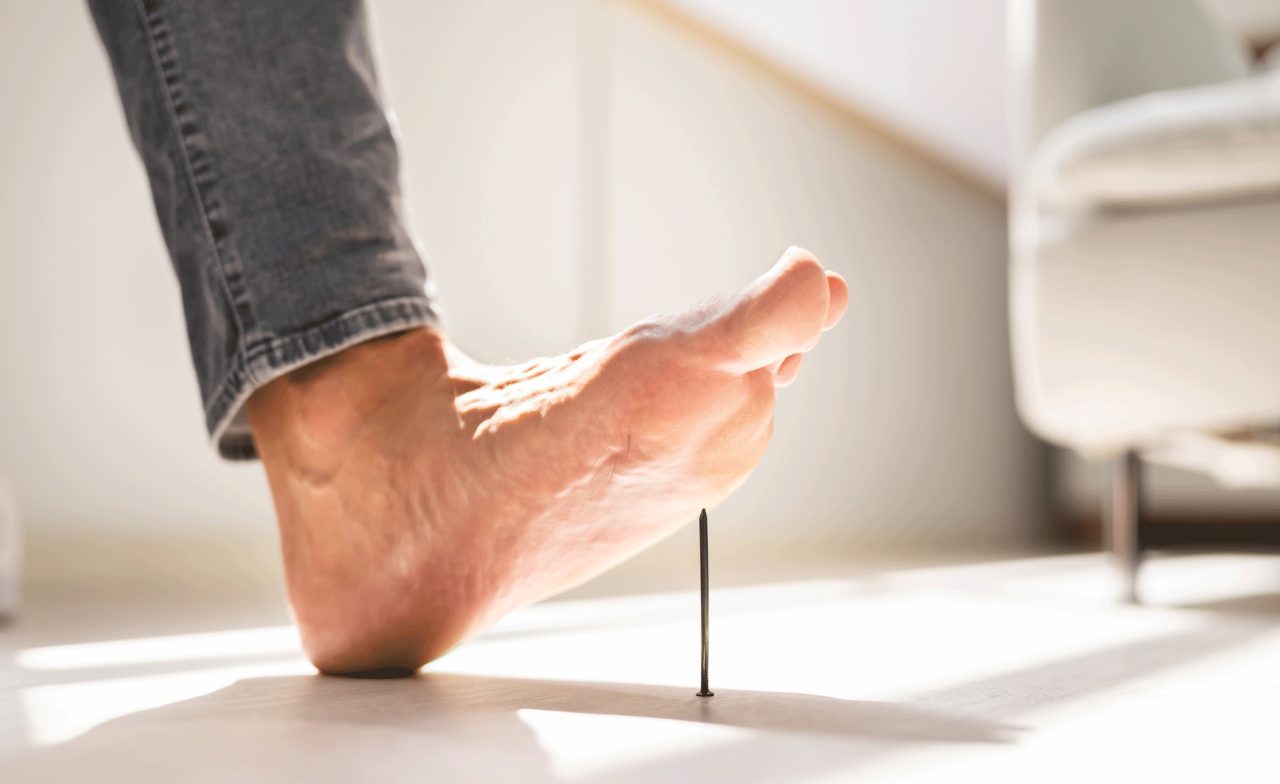Do You Have Pins and Needles in Your Feet?

If you do feel the sensation of pins and needs in your feet, you may have small fiber neuropathy. Talk to your doctor. Type 2 diabetes might be causing the problem.
It’s normal to have prickly sensations in your feet sometimes, for example, if you sit for too long in a position that cuts off your circulation.
But some people have ongoing pins and needles that become painful. Often, the problem comes when you are lying in bed and interferes with falling asleep. It may start in your feet and move up to your hands.
According to a study, the problem, called small-fiber neuropathy (SFN), may be becoming more common.
YOU MIGHT ALSO LIKE: What Is Peripheral Neuropathy?
What is small-fiber neuropathy (SFN)?
If you have small-fiber neuropathy, you have damage to peripheral nerves far from your spinal cord, typically in your feet and hands. Small nerve fibers transmit information about pain and temperature to your brain. Over time, the affected areas can lose the ability to sense that information entirely.
In the study, about half the patients had type 2 diabetes, the best-known cause of SFN. Other possible causes are chemotherapy, vitamin B12 deficiency, alcoholism, immune illnesses like lupus and celiac disease, and certain infections, including Lyme disease, shingles, and HIV/AIDS.
People with prediabetes can have SFN. Even if you only feel the problem in, say, your toes, it may be progressing to other areas. In the study, a third of patients went on to have large fiber neuropathy, a more serious problem, on average in five years. Large fiber neuropathy can cause problems with balance, blood pressure regulation, and difficulty in walking.
If the nerves serving the organs are involved, you may experience diarrhea or constipation, as well as loss of bowel or bladder control.
What does SFN feel like?
Do any of these sensations apply to you?
- My feet tingle.
- I feel pins and needles in my feet.
- I have burning, stabbing, or shooting pains in my feet.
- My feet are very sensitive to touch. For example, sometimes it hurts to have bed covers touch my feet.
- Sometimes I feel like I have socks or gloves on when I don't.
- My feet hurt at night.
- My feet and hands get very cold or very hot.
- My feet are numb and feel dead.
- I don't feel pain in my feet, even when I have blisters or injuries.
- I can't feel my feet when I'm walking.
- The muscles in my feet and legs are weak.
- I'm unsteady when I stand or walk.
- I have trouble feeling heat or cold in my feet or hands.
How is small fiber neuropathy (SFN) diagnosed?
Your doctor will take a medical history. The next step is to order an EMG nerve conduction test to check for damage to large nerve fibers. Small fiber nerves are too small to be measured by a nerve conduction test. But the test will help rule out other causes.
The next step may be a skin biopsy to confirm the diagnosis, usually on your leg. Some patients are diagnosed with SFN without the confirming skin biopsy.
It’s important to try to determine the cause of SFN, although often your doctor is unable to determine a cause.
How is small-fiber neuropathy (SFN) treated?
Combinations of medications can relieve your pain. These may include anti-inflammatory drugs such as aspirin or ibuprofen. If your problem is chronic, your doctor may talk to you about other medications, including antidepressants and anticonvulsants. To slow progression of the disease, you’ll need to correct the underlying cause. If it arises from diabetes or prediabetes, strict control of your blood glucose levels through diet, exercise, and medication may help. Correcting a vitamin B12 deficiency is an easy fix.
If pain in your feet makes it difficult to walk or run, try swimming or muscle-building exercises.
Updated:
August 24, 2022
Reviewed By:
Janet O’Dell, RN